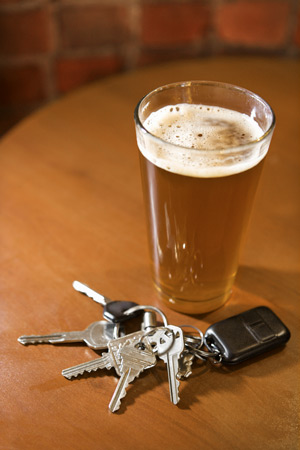Driving and Autos: Driving Under the Influence
Drunk Driving Laws
You are considered legally intoxicated in China when you have a blood-alcohol level of 0.08 percent (80 mg alcohol per 100 ml) or higher. Drivers testing above this limit are charged with driving while intoxicated, which carries very strict punishments. There is a lesser offence of driving after drinking alcohol, which applies to drivers with blood alcohol levels below 0.08 percent but above 0.02 percent (20 mg alcohol per 100 ml).
The minimum legal age to drive automobiles and to drink alcohol in China is 18.
Sobriety Test
If you are stopped by the police under suspicion of drunk driving, you are required to take a Breathalyzer test. If you fail the test or the police believe for other reasons that your driving is impaired as a result of drinking, you would be arrested. Refusal to take a Breathalyzer test can result in revocation of your driving license. A Breathalyzer test is used during roadside stops, but other tests (urine or blood) can be given at a police station to collect evidence if a driver fails a breathalyzer test. If the test is negative, the police must let you proceed.
Chinese law permits police officers to begin a DUI investigation at an accident or after they observe driving behavior that suggests intoxication, such as unsteady lane travel or speeding. In addition, police officers can initiate random breath tests and set up checkpoints around urban areas.
Penalties for Driving Under the Influence
The penalties for driving when intoxicated are very strict in China. Your driver’s license can be revoked for up to five years, and if a drunk driver causes an accident serious enough to constitute a crime, the revocation may be made permanent. Large fines are also accompany the loss of a driver’s license. Drivers charged with driving after drinking alcohol are still considered to be impaired by police officers and can be fined and receive a six-month suspension of their license.
Drugs and Driving
Starting in 2013, the police began using instant saliva test kits to collect samples for drug testing of drivers. The tests provide instant results and allow police to arrest motorists driving under the influence of drugs. Punishments are currently less severe than for drunk driving, but if a driver is found to be a drug addict following a police investigation, his or her license can be revoked. Known drug addicts are currently prevented from applying for a driving license.
Social Attitudes Toward Drinking
Drinking alcohol is deeply entwined in Chinese culture. Getting drunk together is often seen as a true sign of friendship. Drunk driving was seen as a minor infringement for many years, but social attitudes have changed rapidly in the last decade and particularly since hard-hitting advertising campaigns have been implemented in big cities. Public awareness campaigns have become more widespread, with various methods of communication—including creative imagery and explicit television campaigns— being used to tackle the issue.
In 2011, high profile Chinese pop singer Gao Xiaosong was jailed for six months, fined the equivalent of 600 US dollars and banned from driving for five years after being caught drunk driving. National cases have helped persuade people, especially those of the younger generation, that drunk driving is unacceptable and that laws apply equally to everyone. Recent evidence has shown declines in the number of drunk drivers caught in the big cities of up to 35 percent in the past two years.
Writer: Paul Giess
Copyright © 1993—2025 World Trade Press. All rights reserved.

 China
China 